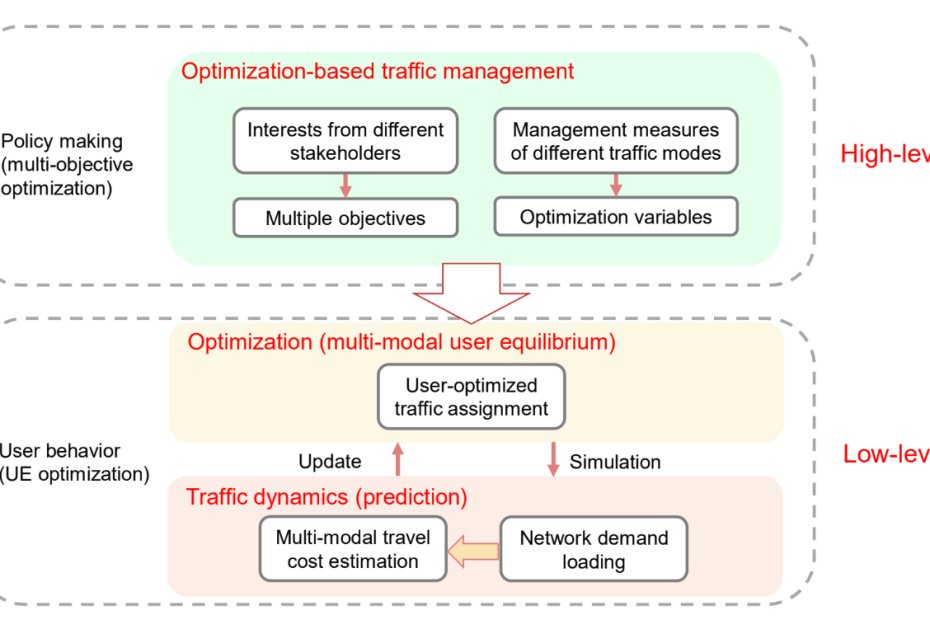Urbanization, shrinking transport space, and rising vehicle numbers challenge urban accessibility, leading to congestion, pollution, and longer commutes. To address this, low-car urban zones and multi-modal traffic management—incorporating cycling, walking, shared mobility, and public transport—are vital. However, balancing conflicting stakeholder interests is complex. Traditional methods, like the weighted sum approach, limit solutions. This study proposes an augmented ε-constraint-based optimization framework for managing multi-modal traffic. It generates a Pareto front of solutions, helping decision-makers choose the most suitable option. A case study validates the framework’s effectiveness in improving traffic performance and exploring trade-offs.

Authors: Dingshan Sun (picture), Marco Rinaldi , Simeon C. Calvert and Victor L. Knoop
Publication date: 2024
